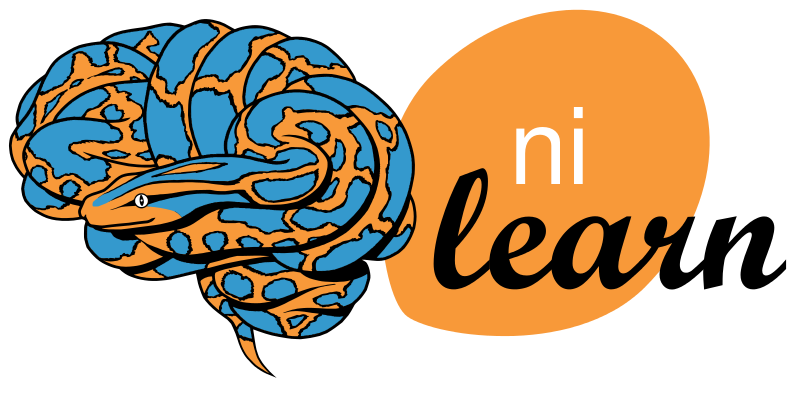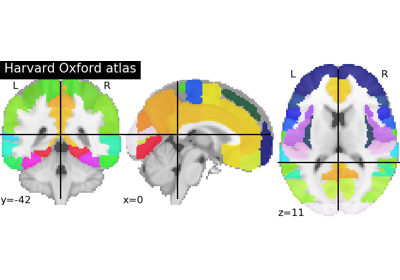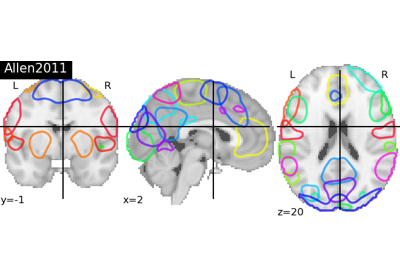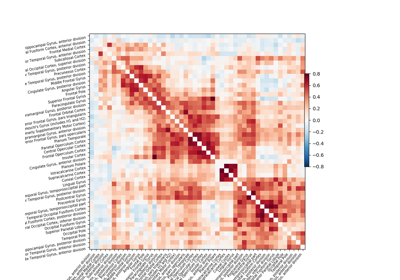Note
This page is a reference documentation. It only explains the function signature, and not how to use it. Please refer to the user guide for the big picture.
8.2.3. nilearn.datasets.fetch_atlas_harvard_oxford¶
nilearn.datasets.fetch_atlas_harvard_oxford(atlas_name, data_dir=None, symmetric_split=False, resume=True, verbose=1)¶Load Harvard-Oxford parcellations from FSL.
This function downloads Harvard Oxford atlas packaged from FSL 5.0 and stores atlases in NILEARN_DATA folder in home directory.
This function can also load Harvard Oxford atlas from your local directory specified by your FSL installed path given in data_dir argument. See documentation for details.
Parameters: atlas_name: string
Name of atlas to load. Can be: cort-maxprob-thr0-1mm, cort-maxprob-thr0-2mm, cort-maxprob-thr25-1mm, cort-maxprob-thr25-2mm, cort-maxprob-thr50-1mm, cort-maxprob-thr50-2mm, sub-maxprob-thr0-1mm, sub-maxprob-thr0-2mm, sub-maxprob-thr25-1mm, sub-maxprob-thr25-2mm, sub-maxprob-thr50-1mm, sub-maxprob-thr50-2mm, cort-prob-1mm, cort-prob-2mm, sub-prob-1mm, sub-prob-2mm
data_dir: string, optional
Path of data directory where data will be stored. Optionally, it can also be a FSL installation directory (which is dependent on your installation). Example, if FSL is installed in /usr/share/fsl/ then specifying as ‘/usr/share/’ can get you Harvard Oxford atlas from your installed directory. Since we mimic same root directory as FSL to load it easily from your installation.
symmetric_split: bool, optional, (default False).
If True, lateralized atlases of cort or sub with maxprob will be returned. For subcortical types (sub-maxprob), we split every symmetric region in left and right parts. Effectively doubles the number of regions. NOTE Not implemented for full probabilistic atlas (-prob- atlases).
Returns: data: sklearn.datasets.base.Bunch
dictionary-like object, keys are:
- “maps”: nibabel.Nifti1Image, 4D maps if a probabilistic atlas is requested and 3D labels if a maximum probabilistic atlas was requested.
- “labels”: string list, labels of the regions in the atlas.



